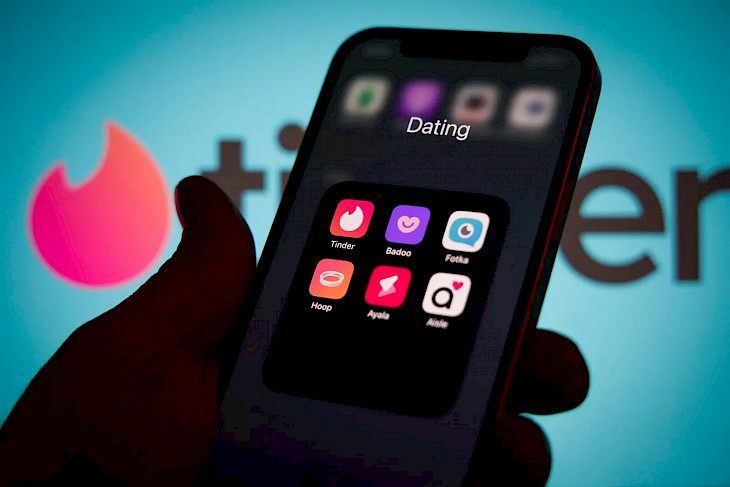
When dating apps start remembering your turn-ons, the experience shifts from meaningless swiping to something far more personalized and intense. The apps begin to learn not just what you say you like, but how you respond in real time—such as which profiles you linger on, what kind of banter keeps you engaged, and even behavioral cues like response timing or emoji use. Over time, this data trains algorithms to surface people who match your unique preferences, creating an eerie mirror of your desires and online behavior.
A Long Time in Coming
This moment in dating app development was a long time in coming. The dating assistant app Rizz was a pioneer, suggesting much-needed responses to dating app users. Oxford University Press defines rizz as "charm, style, or attractiveness; being able to attract a sexual or romantic partner" and has even named it the word of the year. Rizz's service was in high demand because a lot of men and women simply "don't know how to communicate online," the platform's co-founder, Roman Khaves, told Time Magazine. The pandemic confined populations to their homes, and young people's communication skills were hit especially hard because they were less likely than older people to have developed these skills before COVID-19 struck.
Closing the Gap
There's no doubt that communication skills in dating and relationships are paramount. A survey by the National Marriage Project found that 94% of couples who reported poor communication also reported being unhappy in their marriage. According to 65% of experts in another survey, communication problems are the leading cause of divorce.
The art of communication is in giving and receiving. The prospects of a relationship in which one partner tends to talk too much are poor. Almost two-thirds (60%) of women in the above survey shared that they broke up with their partners because the latter talked too much and mostly about themselves.
Dating Apps and the AI Race
At the beginning, dating sites asked users to describe what they were looking for in a mate, but this approach turned out to be ineffective because people weren't really aware of their real turn-ons. More recently, apps have been trying to determine compatibility based on how people behave, i.e., their swiping patterns.
Traditional dating apps are starting to incorporate AI into their products. Match Group announced it was testing an AI-powered tool for Tinder that would assist users in choosing their best photos and an option explaining why other users could be good matches. However, traditional online dating services are facing a challenge from AI matchmakers, which are built with AI at their very core.
The Other Side of the Coin
The accuracy with which these new apps remember your turn-ons may be amazing, but it comes with a new and not entirely welcome vulnerability. When AI knows your turn-ons better than you do, matches start to feel less spontaneous and more predetermined. There's a risk of reinforcing shallow patterns or being nudged toward connections that feel good in the moment but lack depth. Systems are getting smarter in 2025 and starting to shape not just who we find attractive, but how we actually define compatibility, raising an important question: who's really making the first move?
AI Relentlessly Marches On
The AI dating app market is predicted to grow by 95% a year globally, reaching $11.24 billion in 2027. According to a recent survey:
- The search term ""AI girlfriends" increased by 525%.
- 54% of respondents are willing to use AI to find matches.
- 47% demonstrate interest in advanced AI-based dating apps.
Hinge's AI-powered "Standouts" feature generated 2.5 times more chats and 26% more matches than traditional swiping. According to TechCrunch research, 72% of dating app users are open to using AI-powered capabilities, especially when it comes to profile improvement. Bumble's AI-powered "Night In" led to a 60% growth of video call conversions within six months of launching. Dating apps haven't been spared AI's relentless march forward, for better or worse.
Looking Ahead: Ethics, Empathy, and Emotional Intelligence
As dating apps become more immersive and AI-driven, developers must grapple with ethical implications. Are users being nudged toward certain behaviors or manipulated into specific matches? There is a growing call for transparency in how dating algorithms operate and for options that let users understand why they're seeing a particular match. Some experts propose that ethical AI in dating should prioritize emotional intelligence—recognizing when a user may need encouragement, space, or even a break.
Additionally, there's the question of emotional burnout. With dating apps collecting and analyzing intimate behavioral data, users may start to feel emotionally overexposed. Balancing technological precision with genuine, human connection is a challenge that developers must approach with care. As dating apps grow smarter, they must also become more empathetic.
Conclusion
In an era where AI is reshaping every facet of our lives, dating is no exception. The emergence of apps that can remember and learn your turn-ons offers the promise of more tailored and satisfying connections. Yet, this advancement also calls for caution. When algorithms begin to know us too well, we risk losing the spontaneity and unpredictability that make human connection so special. To truly benefit from AI-powered matchmaking, we need to use it mindfully—understanding its potential while not letting it define us. Dating in 2025 is becoming smarter, yes, but it should also strive to become kinder, more transparent, and more attuned to what makes romance real: authentic connection.
By embracing this technology with curiosity and care, users and developers alike can work together to build dating experiences that are not only efficient but also emotionally fulfilling.





